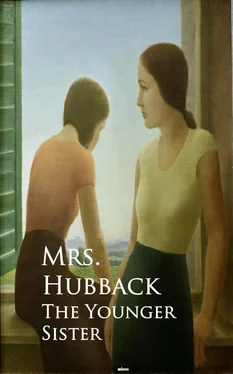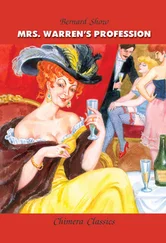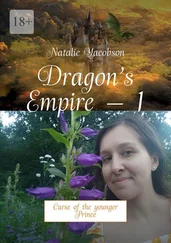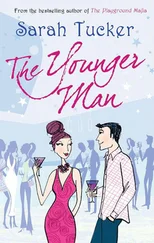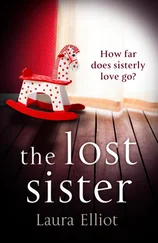"Your humility, Miss Osborne, is most commendable," said he, with a playful bow.
"Oh, yes, I am the humblest creature in the world—there are some things in which I believe you and a few others are wiser than myself—Greek and mathematics for instance."
"Your learning in those two branches did not use to be remarkable."
"Oh, I dare say I know as much as half those who have passed through Eton—they learnt to forget—I forgot to learn—there is not much difference."
"Not as you state it, certainly; apparently, you hold the learning of your acquaintance rather cheaply."
"Well, perhaps I do—but, really, one seldom meets with
very
wise men in these days: one
hears
such prodigies have existed in former times—but, I dare say they were not at all like the generality of our gentlemen companions, and would be sadly at a loss to comprehend our amusements, could they re-appear on the scene."
"You know scholars are proverbially awkward, bashful and absent—and, unless you would tolerate all those capital crimes, you need not wish for them in your company."
"I look upon you as a scholar, Mr. Howard," said the young lady, laughing.
"I cannot plead guilty to the impeachment, Miss Osborne."
"But I do not consider you particularly awkward nor intolerably bashful—and—what was the third crime you laid to the charge of scholars?"
"I forget."
"What intolerable affectation," cried Miss Osborne, "you want to be accused of absence of mind. But here we are at the gallery. Now, Miss Watson, make Mr. Howard tell you all about them."
The collection was really a very good one, and Emma was delighted. Miss Osborne looked at two or three, then sauntered about the room—looked out of the window—and, at length, returning to her companions, said:
"I have just recollected an engagement, for which I must leave you—I will be back as soon as I can; but don't hurry, and don't wait for me. You may be quite comfortable here, nobody will disturb you."
She then left them to another protracted
tête-à-tête
; a particularly pleasant circumstance to Mr. Howard, who found an increasing charm in Emma's conversation.
When tired of walking about and straining their eyes upwards, they sat down on a comfortable sofa in a recess, where they could at once enjoy the view of a beautiful landscape, and converse comfortably.
"You surely must have been used to look at good paintings," said Mr. Howard, "It is a taste that requires as much cultivation as any other art. You evidently know how to look at a picture, and how to appreciate its merit."
"I do not pretend to be a connoisseur, I assure you," said Emma.
"There is no occasion that you should—you have an eye and a taste, which, lead your judgment right, and I can perceive that you are well acquainted with the styles as well as the names of great artists."
"I almost suspect you of quizzing me," replied Emma, blushing, "have I been saying or affecting more than you think I felt."
"You are unjust to us both in such an idea," cried he, "I should not take such a liberty; and you are in no danger of tempting me."
"My kind uncle was extremely fond of the art," said Emma, "and he took me to every good collection and exhibition within our reach. He likewise took great pains to form and correct my taste; so that I ought rather to blush at knowing so little, than receive compliments on the subject."
"I do not know of what uncle you are speaking," said Mr. Howard, in a manner that denoted his interest in her connections; "you forget that I know almost nothing of your family."
"The uncle who brought me up; Dr. Maitland."
"Then you were not educated at Winston?"
"I—oh no—my home was formerly in my uncle's house—I have not been more than two months resident in my father's family."
"I dare say you think me a very stupid fellow for not being aware of this—but though I saw you were different from your sisters, and indeed most of the young ladies of the neighbourhood, the reason never occurred to me."
"You thought, I suppose, I was a sort of Cinderella," said Emma laughing, "let out by some benevolent fairy on the occasion of one ball, and that having once escaped into public, I could not be repressed again."
"You know I had not been in your father's house, and had therefore no reason to assign you an imaginary abode in the kitchen, in preference to the parlour, where I had never been. But I own I was surprised by your sudden apparition, since I had neither in ball-room or street, town or country, seen or heard of more than three Miss Watsons."
"I can easily believe it—so protracted an absence will naturally sink one's name in oblivion."
"May I ask if you are to return to your uncle's house?"
"Alas! no—my dear, kind uncle died not quite a twelvemonth ago—my aunt has left England to settle in Ireland—and my home is now at my father's."
"Is it not with rather a strange sensation that you meet your nearest relations; they must be almost unknown to you."
"I have made acquaintance with one brother and two sisters," replied Emma with something like a sigh; "But I have yet to meet another brother and sister."
"It seems almost a pity," said Mr. Howard thoughtfully, "to bring up one child apart and differently from the other members of a family, if they are ultimately to be rejoined. At least I feel in my own case how much I should have lost, had Clara been separated from me in childhood. I suppose it rarely happens that a brother and sister are so much together as we were—but we were orphans, and everything to each other till her marriage."
"It does not do, Mr. Howard, to indulge in retrospective considerations, if they tend to make one dissatisfied," said Emma, with an attempt to check a tear or hide it by a smile; "my friends wished to do everything for the best, and if the result has been different from their intentions, they are not to blame. But I do not know that I should choose to repeat the experiment for one under my care."
"Do you like the neighbourhood?" enquired he, feeling that he had no right to press the last subject further.
"I have seen so little; the weather has been so unfavourable, but it does not strike me as being very beautiful about Winston. I was used to fine scenery in the west of England."
"Then you will naturally think Winston flat and uninteresting.—Osborne Castle and its park have beauties, however, which you cannot despise—but in my enquiry I rather referred to the inhabitants—have you pleasant neighbours about your father's house—I do not visit in the village."
"We live so very quietly," replied Emma, who had no intention of satisfying his curiosity as to their acquaintance, "that I have had no opportunity of judging. I
saw
a great many people at the ball, but as you must have seen them too, you are as equal to decide on their appearance as I am."
"You know Mr. Tom Musgrove of course?"
"A little."
"He is not a person of whom most young ladies answer so coolly; if I put the same question to five out of six of my acquaintance, they would reply with rapture—he is charming—divine—a perfect pattern for all gentlemen."
"I understood he was a great favorite," observed Emma, still in the same composed voice.
"I have been used to consider him such a perfect example in everything relative to the important concerns of fashion and the toilette," said Mr. Howard, gravely, "things which I know are of the first importance in the eyes of ladies, that I have seriously proposed when I wish to be particularly charming to copy him in the tying of his cravat."
"I am not quite sure whether I should think any one improved by copying Mr. Tom Musgrove, from his cravat to his shoe-buckles: but I have, I am afraid, a wicked prejudice, against any individual who is considered
Читать дальше
